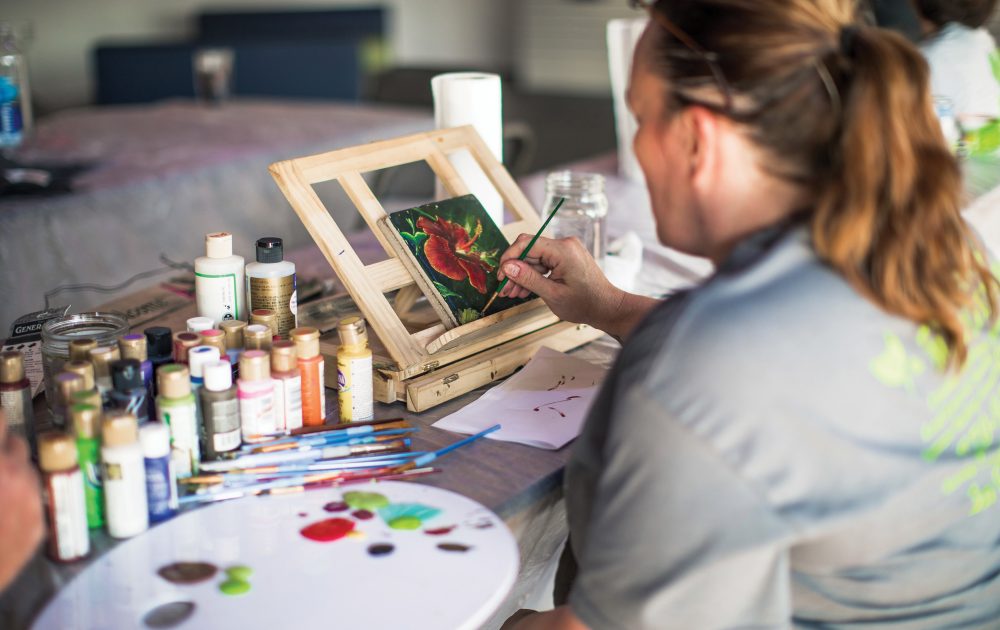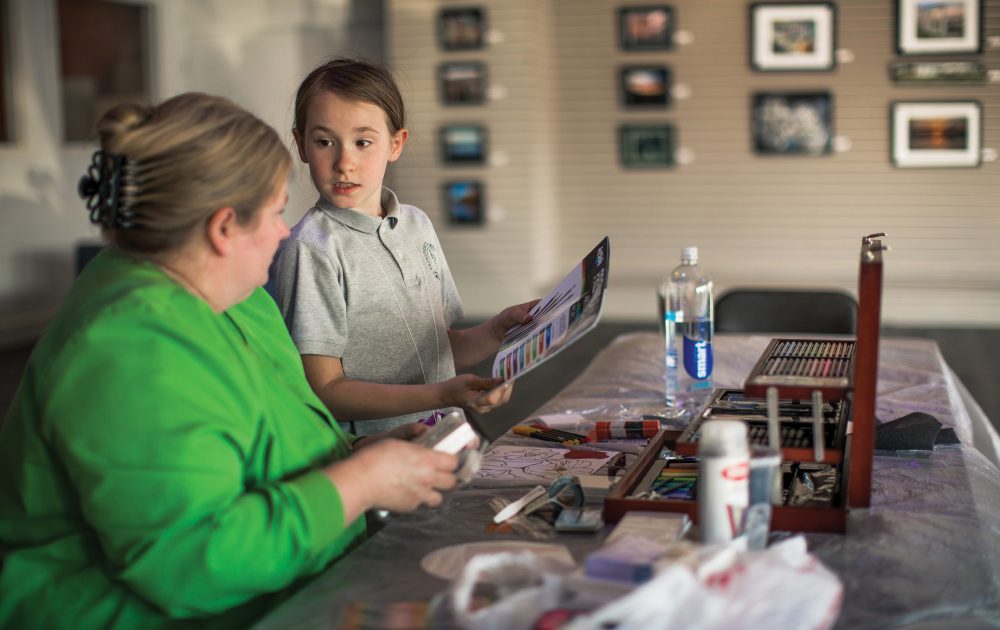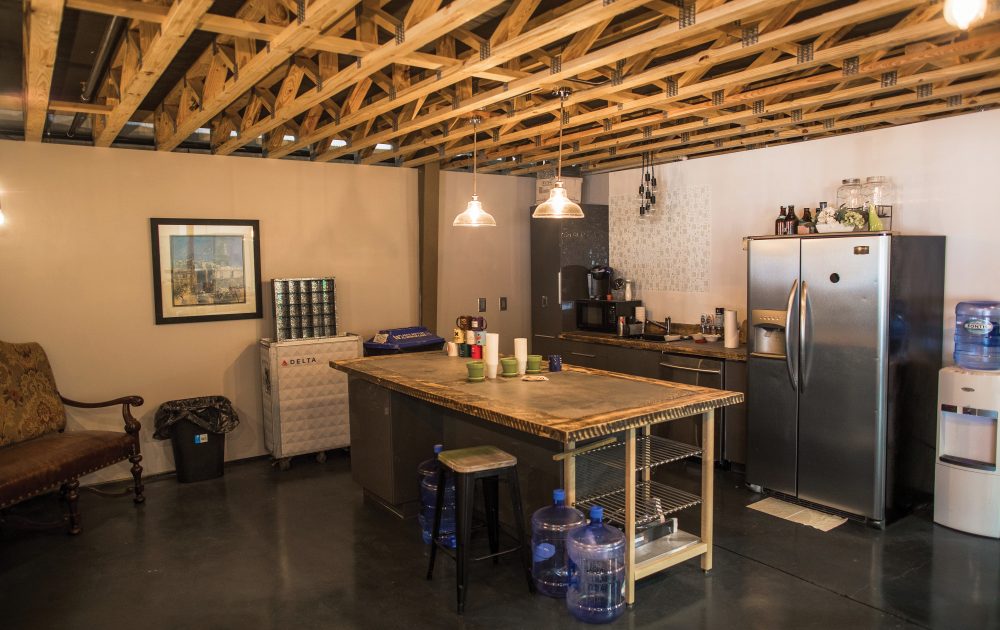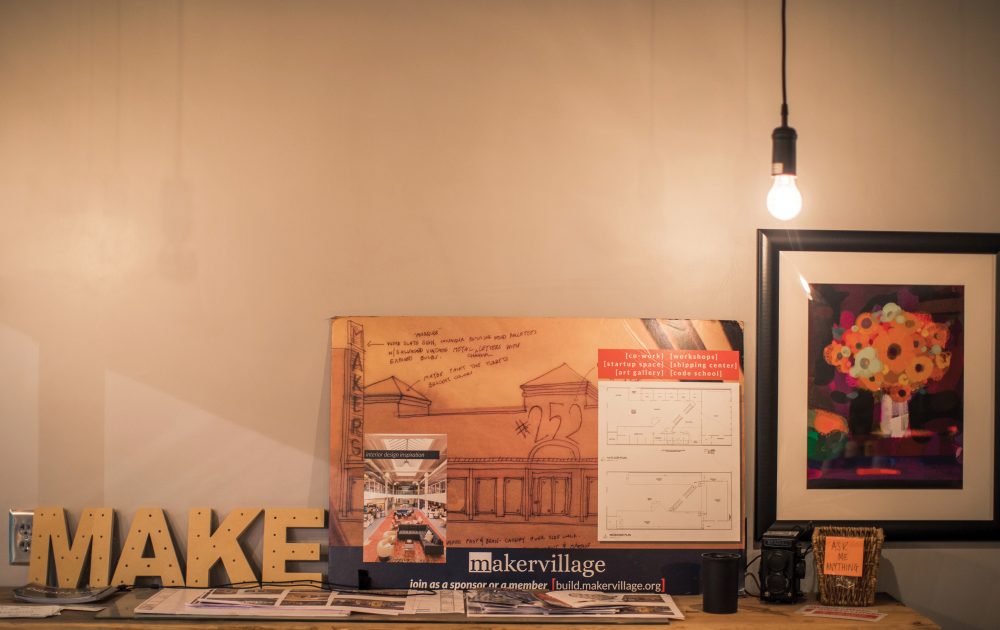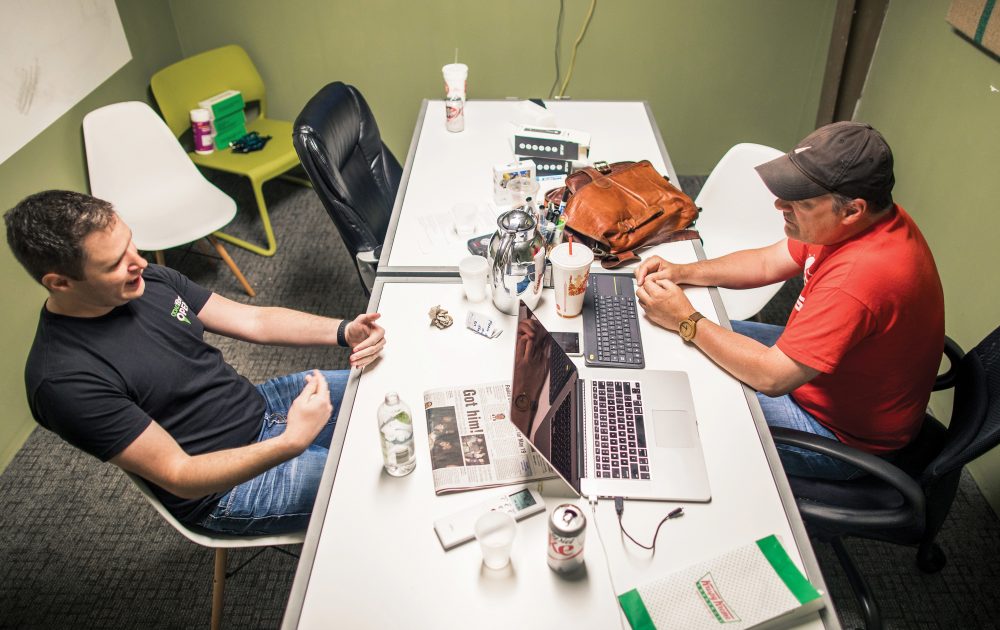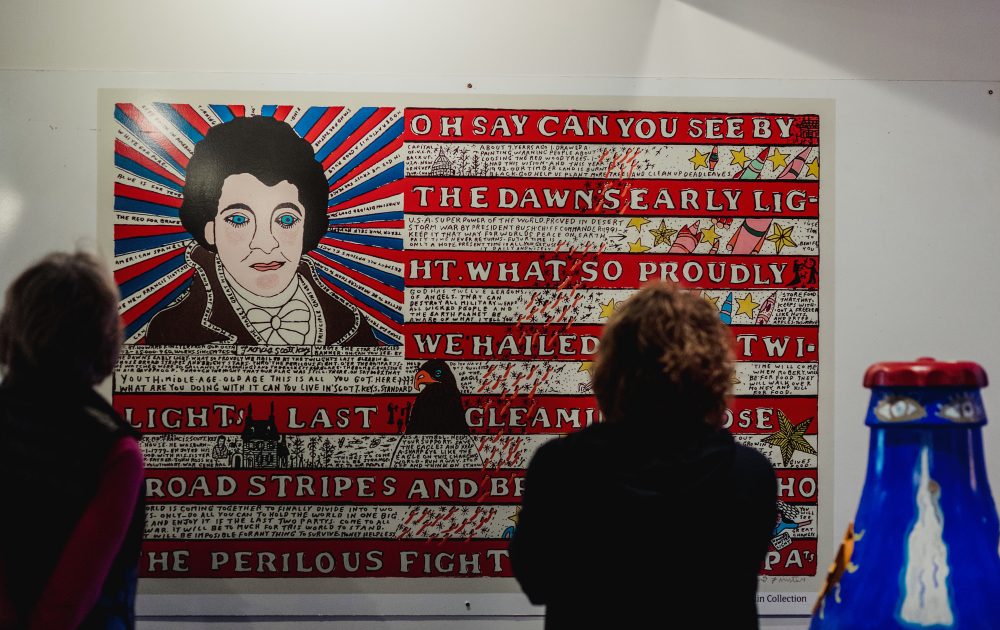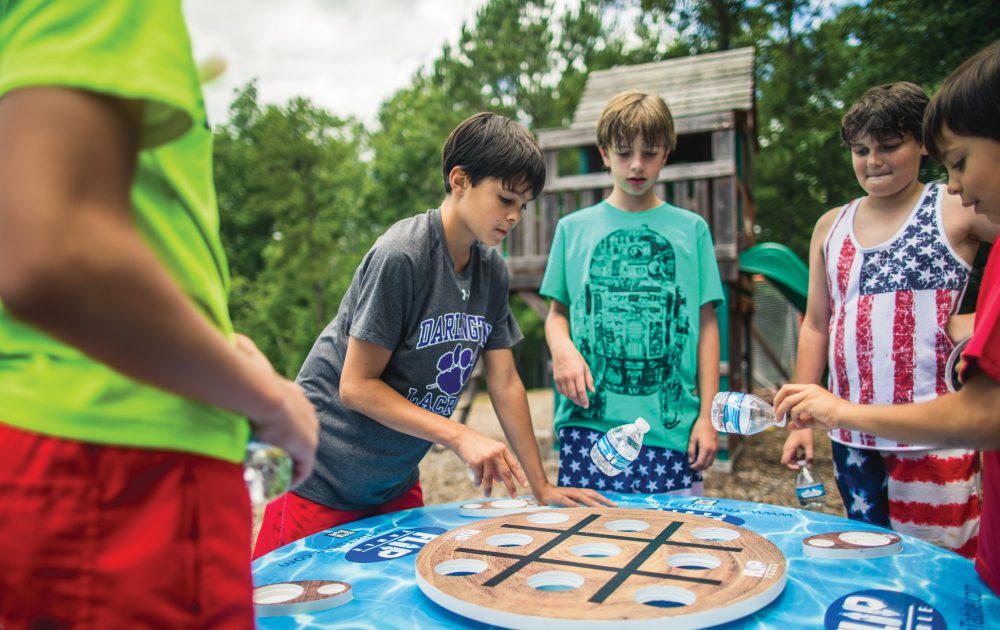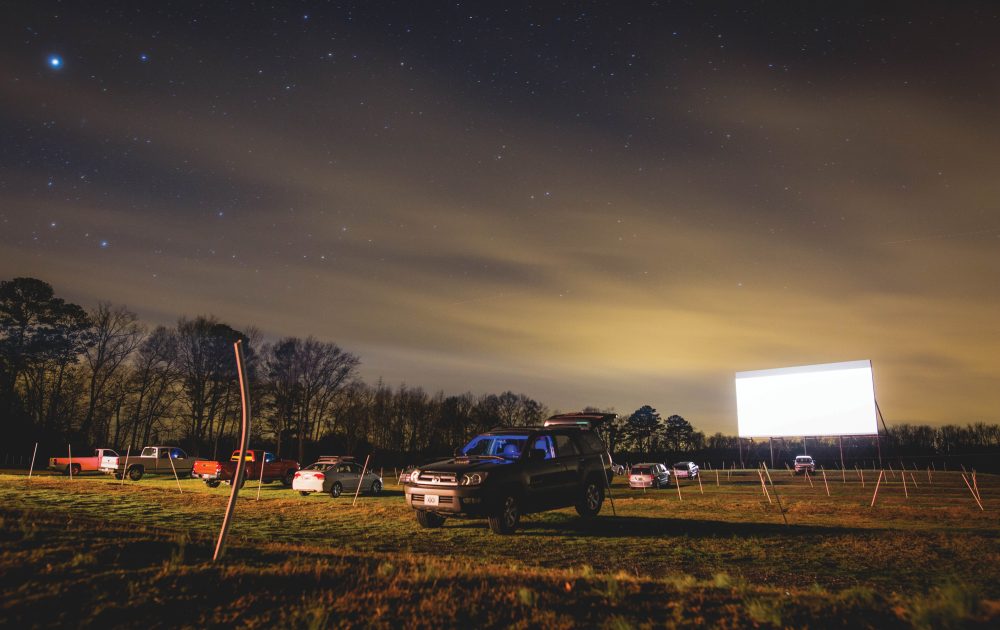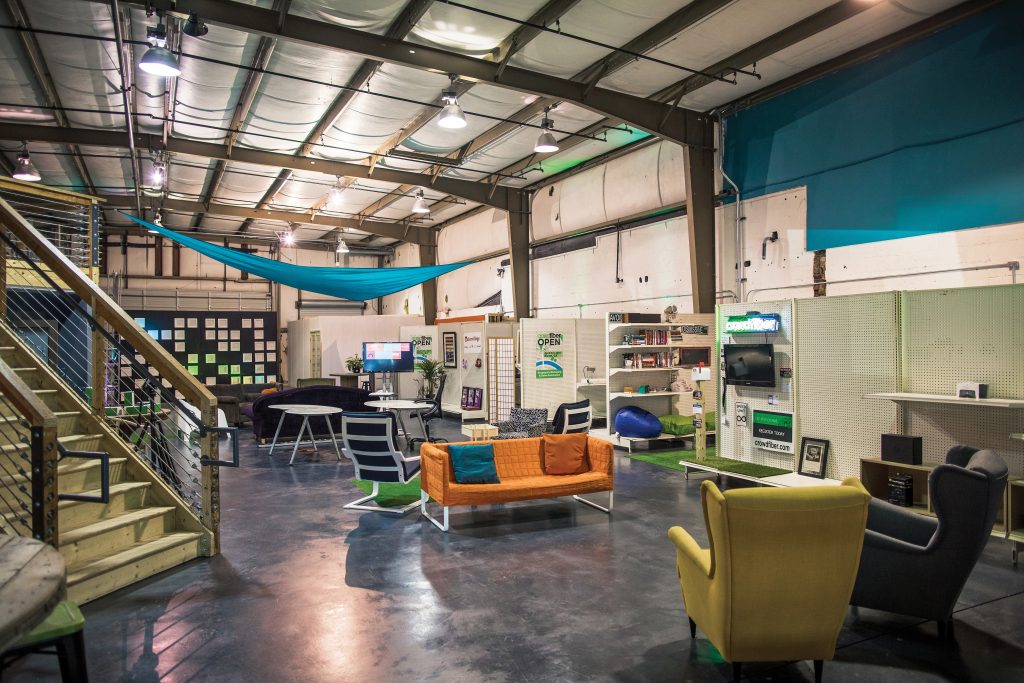
PHOTOGRAPHY CAMERON FLAISCH
IT STARTS WITH the flicker of an idea.
All it takes is that nanosecond, that infinitesimal spark between the synapses that accumulates layers and gains a purpose that latches onto logic. This tiny idea expands, increases momentum and explodes into something much larger. It gains traction, and if it’s a good idea, it’s challenged, pushed back upon and edited. The idea is rethought and remade better than it was at the moment of its conception. It gives birth to sub- ideas, collects followers and soon, a community is built around it.
Now, it’s more than an idea; it’s a legitimate thing. It’s a product, it’s a small business, it’s an app, it’s a program. It’s something that was made during years of late nights, failures and successes, using baby steps, then great strides and finally, achievement that lends itself to constant improvement.
The amazing phenomenon of an idea be- coming reality is happening right here in Rome, Georgia, within the vast four walls of Makervillage. Simply put, Makervillage (252 North 5th Avenue, Rome) is the place where ideas from creative minds collide and eventually become reality. It’s a co-work space and startup creative community thriving in an expertly renovated warehouse in the heart of the Fifth Avenue River District in historic Downtown Rome.
“Makervillage is a multi-purpose creative space able to accommodate a variety of uses simultaneously, all aimed at encouraging and nurturing creatives and entrepreneurs – and recognizing that those two things may take lots of different forms,” says Tricia Steele, founder and president of Makervillage.
Steele, known for her business SAI Digital, became enveloped in the idea of Makervillage years ago when she was involved with Seven Hills Makerspace, an experience which paved the road that lead to Makervillage.
“I was very interested in what happens when you bring people with various backgrounds and interests and encourage collision,” Steele re- calls. “But as an entrepreneur, I had had a pretty lonely road. I felt like it had been hard to find a community of people where we had things in common as far as our everyday work experiences. I was searching for higher growth-intentioned companies, technology-driven companies, like all companies should be.”
Steele explains that her first conception of Makervillage was the notion of taking the Maker Movement and fusing it with the idea of a shared workspace for creative minds. The first iteration of Makervillage was on Clocktower Hill where she and Greg Richardson together purchased five different properties to create a co-work environment.
Although Steele and Richardson had purchased all that space for creating, she says the fact that they were spread throughout five different properties lended itself to creative separation.
“What I discovered was that when you are creating something, whether it’s a piece of art or a business, time and location really do matter. We were right next to each other, but we often did not have the kinds of collisions that I had been hoping for.”
Steele was on a quest to find the location of her dreams that would allow Makervillage to function the way she knew it could. Throughout the span of time she was scouting, the Maker- village team held countless workshops, had lots of meet-ups and asked key questions to artists and entrepreneurs. They actively sought to figure out the kinds of features the Makervillage building needed to help creatives reach their fullest potentials.
“We wanted to make sure we were solving real problems, not just what we wanted to solve.” Steele wanted a space to nurture a Rome- based computer science program, artists and entrepreneurs. In order for that culture to grow and thrive, the Makervillage community needed a place to hang its hat. After a lengthy search, Steele found the perfect location.
“I will acknowledge that I had sort of the feeling that people have when they talk about falling in love at first sight,” Steele recalls. “The building was so dusty and broken in some ways. This vision just sort of swelled up in me that it could really be something phenomenal.”
Steele enlisted the help of an architect with a similar vision of Makervillage and they drafted some sketches for the building’s interior.
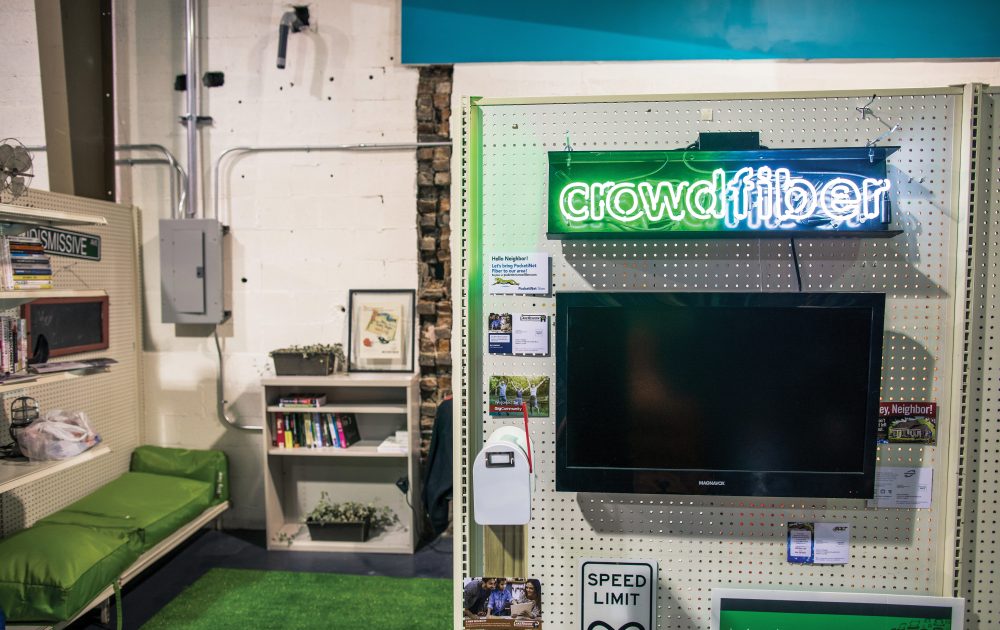
“I started socializing those sketches with entrepreneurs and artists to kind of find out, ‘Have we got it wrong? Have we got it right?’”
Steele says she understood that her job was to empower artists, creatives and entrepreneurs to empower themselves.
“I want to empower them to make a plan, figure out how to fund it and execute it alongside everything else that’s already going. There’s nothing that isn’t permitted here.”
Each minute detail about the building was planned to make it an amazing space that fosters creativity, business and growth. The front lobby is a community art gallery which Steele says will be curated with help from the Rome Area Council for the Arts and Chiaha as well as other arts organizations.
The work spaces available for subscribers allow for focus and the cross-pollination of ideas between groups. Everything from the kitchen to the work areas have all been designed for individual and group endeavors, whether someone needs focus quietly or bounce ideas around with others. Many of the surfaces in Makervillage are writeable, so no matter where people are collaborating, they are able to jot down thoughts without having to search for something to write on. A Free Idea wall is just beyond the entryway, for those thoughts that are up-for-grabs.
“We want to emphasize that if you have a great idea and you’re not going to do anything with it, throw it up for the rest of the community in case there’s someone itching for inspiration who may want to tackle something with you or on their own,” Steele says. “We want to encourage that sharing of ideas.”
The kitchen countertops and table, Steele said, are a custom-built creation invented by local pastor Charles Looney who uses a wood and concrete technique. Even the stairway utilizes a unique design, with fiber optic cables accenting the structure.
“It sort of pays tribute to the idea of connectedness,” Steele says. “We believe the internet allows any number of businesses to flourish. We’re internet nerds, so it’s built into the structure of the building.”
The upstairs space, Steele says, will house more office pods and an area for coding classes. The downstairs has space for workshops, talks and presentations.
There’s a fully-stocked marketing lab with cameras and equipment for those who need to quickly market their products. There’s a shipping station for entrepreneurs and artists to be able to ship and send out their products to buyers.
“Our shipping center is really the result of listening to artists about some of the barriers that may keep an artist from pursuing their craft as more of a full-time gig,” Steele says. “The post office or other shipping centers may not provide everything they need for shipping, or they can make shipping difficult. Here, folks can just buy the access to the shipping center if that’s all they need, and they can get access to all the cardboard and peanuts and tape they would need in order to get stuff shipped.”
For artists, creative-thinkers, entrepreneurs and anyone wanting to be a part of the energy of Makervillage, the registration process is simple and can be completed online at Makervillage.org. Fees start at the minimum of $50 per month, but Steele says there are Open Access times for those just getting started.
“We recognize artisans, craft entrepreneurs and certainly software startups in the really early phase need there to be no barriers in order to work on some of those ideas. Open-access time is first come, first serve, and we still ask that folks go through our registration process and make sure we know who’s in the building and have emergency contact info.”
In the space of Makervillage exists the fervent belief that anything is possible, and here artists and entrepreneurs in Rome will have a home to grow and create.
“Everything that you look at can be looked at a new way,” says Steele. “We’re challenging the way people look at the world around them, and encouraging them to be creative.”
For more information about Makervillage find them on Facebook or call at 706-413-2802.

